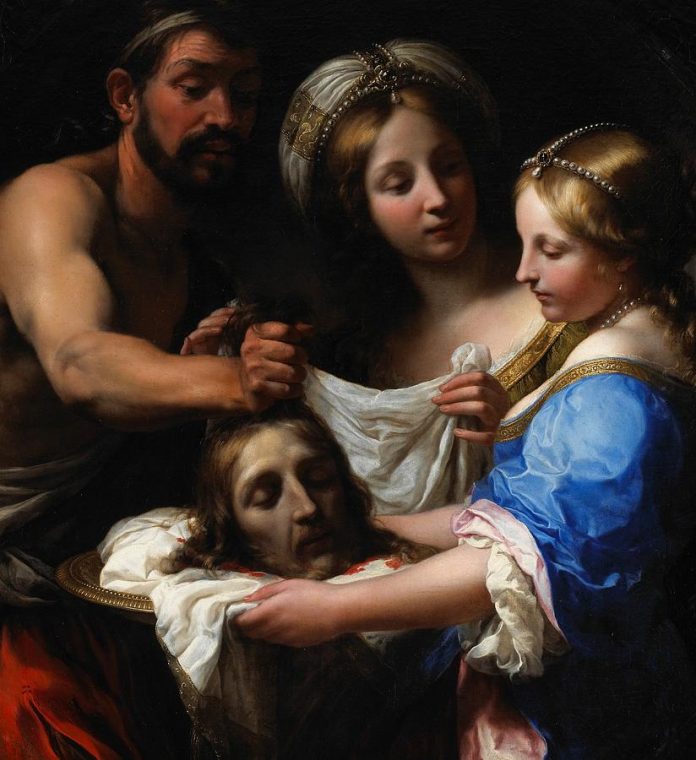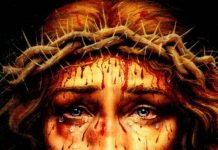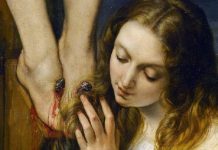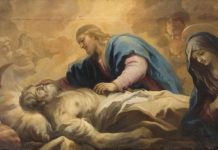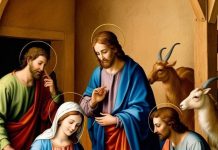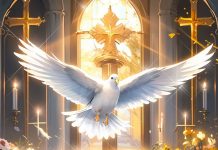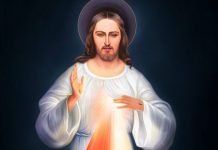‘As they went away, Jesus began to speak to the crowds about John: “What did you go out into the wilderness to look at? A reed shaken by the wind? What then did you go out to see? Someone dressed in soft robes?…… “( Mt 11:7-8).
John the Baptist was one person whom Jesus praised the most. His greatness can be measured from the words of Jesus that among those born of women no one has arisen greater than John the Baptist. Yet it should not be missed that the least in the kingdom of heaven is greater than he. When we describe the coming kingdom as one that neither our eyes have seen nor our ears have heard, are we aware that those who try to enter it will be measured by a difficult scale? The bliss of heaven is something that the human heart has never experienced. Let us hope that we will be treated at least among the least in the kingdom. To be counted with the greats in heaven was a difficult task even by John’s standard. Forget about the seat we are going to get in heaven; reaching there itself needs enormous effort from our side. To gain entry into the kingdom of God, we must be vigorous, forceful and focused on our goal. In other words only a total commitment will lead us to heaven.
John was such a man. His life was committed to God and God alone. The crown of first martyr in the New Testament era rightfully belongs to John. Not that the Holy Innocents were not martyrs. They were murdered not because of anything they did. They died ‘instead’ of Jesus rather than ‘for’ Jesus.
What was the ‘offence’ committed by John the Baptist? It was the very same offence for which all other martyrs in history also were arraigned. It was speaking the truth! John knew that his words would certainly offend the king. It was not an excuse for John to mince his words for the reason that the person at the receiving end was the reigning king. His words were sharper than ax. With those words he led multitudes to repentance. With those words he called a generation that ‘conceived desire and gave birth to sin’, ‘brood of vipers’! Then, if they did not lay their hands on him, it was because his words were strong enough to melt their hardened hearts. Admittedly some among them accused John who ‘came neither eating nor drinking’ as possessed by a demon. Yet they acknowledged the painful truth that they were trees that do not bear good fruit and that the ax was already lying at their root. This is the power of the Word.
The Jews had accepted John as a prophet. Though a gentile by birth and impious by nature, Herod also was convinced of the greatness of John. But unlike the woman of Samaria, who accepted the person who told her ‘everything she had ever done’, Herod was intolerant to the extent that he imprisoned John. By putting John behind bars, Herod increased the number of his sins. But he did not dare to execute John fearing popular backlash, because the people regarded John as a prophet. Mark testifies that Herod Protected John the Baptist upto a point. ‘Herod feared John, knowing that he was a righteous and holy man and he protected him. When he heard him, he was greatly perplexed, and yet he liked to listen to him’ (Mk 6:20). Perhaps that king would have consoled himself that John would not open his mouth against him from the prison.
But on the fateful day of a birthday bash that he celebrated with wine and variety entertainment programs in the company of distinguished guests, the same Herod signed the death warrant of John, whom Jesus Christ had certified as the greatest among mortals. John’s head that never bowed before Herod, did not bow before Herodias either. With his blood spilled on the floor of the prison and then on the platter of the king, John secured a place in heaven.
John’s words and deeds were indeed a reflection of what the great prophet Elijah once did. John’s zeal and commitment to God was well evident in everything he did. True, it was written: ‘At the appointed time, it is written, you are destined to calm the wrath of God before it breaks out in fury, to turn the hearts of parents to their children, and to restore the tribes of Jacob’ ( Sir 48:10). Elijah did come the second time and spoke the truth though it was not pleasing to the king and his queen.
It was a re-enactment of what happened on the Mount of Carmel, where Elijah the lone prophet of the True God stood against found hundred and fifty prophets of Baal and another four hundred prophets of Asherah, who ate at the table of Jezebel the queen. Once his mission was over, Elijah ascended into heaven in a chariot of fire. But John the Baptist secured entry into heaven through a fiery ordeal. Long periods of prayer spent in solitude was not the only thing common to them. Even the dress of these two persons who lived eight and a half centuries apart, were similar! ‘He said to them, “What sort of man was he who came to meet you and told you these things?” They answered him, “A hairy man, with a leather belt around his waist”. He said, “It is Elijah the Tishbite” (2 Kings 1:7-8). And about John it is written: ‘ Now John wore clothing of camel’s hair with a leather belt around his waist…’ ( Mt 3:4).
Their missions were also similar; to prepare the way of the Lord! To be precise, John was sent to prepare the people for welcoming the Messiah, which he accomplished in style. But he never claimed any credit for what he did. He was deeply convinced that he was but the ‘voice of the one crying out in wilderness’ to prepare the way of the Lord and to make his paths straight. He was also convinced that the one who is more powerful was coming after him and that he was not worthy to carry the sandals of Jesus. This sense of deep humility reverberated in his declaration: “He must increase, but I must decrease”.
We are accustomed to a generation where Jesus Christ decreases in direct proportion to the increase in our desire to enjoy life the way we like. Preachers whose primary aim is money are commonplace. Against the backdrop of this quest for money and worldly pleasures, how many among us are ready to humble ourselves for Jesus Christ is the pertinent question. This question assumes more importance in the context of our duty to prepare the way for the second coming of Jesus Christ in glory, just like John the Baptist prepared his way when he came first.
‘ Which of the prophets did your ancestors not persecute? They killed those who foretold the coming of the Righteous One’ (Acts 4:52). This is not about something that happened in the distant past. This is also something to be fulfilled before the second coming of Jesus Christ, the Righteous One. Yes, this is the time when thousands of saints will rise from our ranks. The world badly needs saints in these end times. The world needs them to give testimony to truth, to proclaim the return of Jesus Christ the just judge, and to oppose evil in all its forms. The world is looking for those saints who will stand in faith steadfastly with their heads high in the face of persecution, and who will be ready to sacrifice their life at the moment when the race assigned to them by the Lord is completed. And their blood will not go in vain. Their souls will be safe in the hands of God. ‘I saw under the altar the souls of those who had been slaughtered for the word of God and for the testimony they had given’ (Rev: 6:9). Surely God will avenge their blood on the inhabitants of the earth. It is written: “They were each given a white robe and told to rest a little longer, until the number would be complete both of their fellow servants and of their brothers and sisters who were soon to be killed as they themselves had been killed’ (Rev 6:11).
As the martyrs rest in expectation, they look at us for completing their number. They invite us to follow them in martyrdom. Remember that the revenge on the inhabitants of the earth is postponed until the required number of martyrs rise from our ranks. In this run up to martyrdom let us ask the intercession of St John the Baptist and pray:
O Merciful God,
You raised up St. John the Baptist
to prepare the way for Christ.
We call upon St. John’s intercession
to properly prepare us with faith and true
repentance to receive Your
grace and salvation.
Make us faithful to Truth and Justice,
as You did to Your servant,
John the Baptist, herald of Your Son’s
birth. O Lord, increase Your life within us.
Amen.


